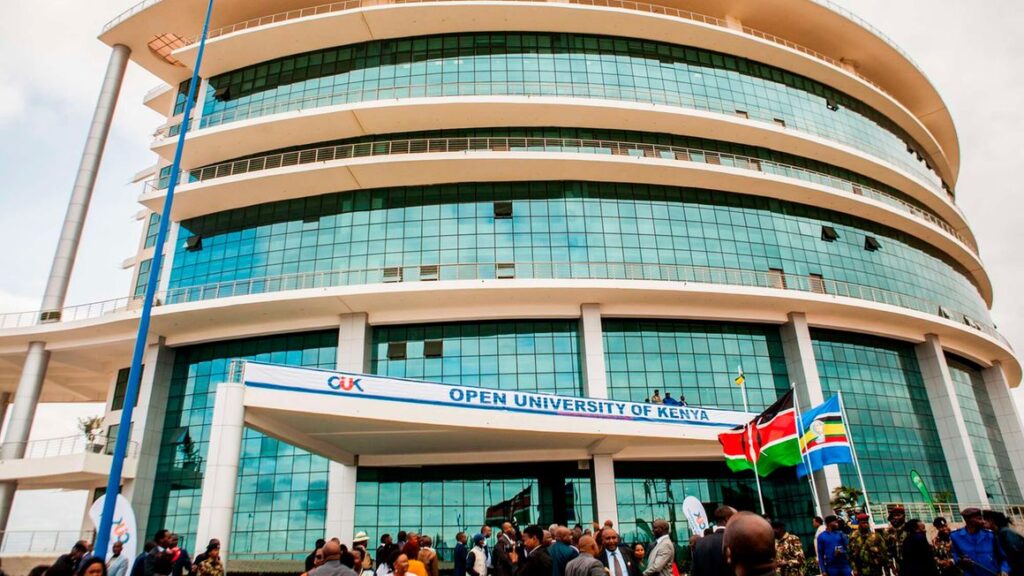2023 witnessed a range of phenomenal milestones that profoundly impacted Kenya’s technology ecosystem, with some of them enhancing humans’ life quality as others threw severe interruptive blows to the long-standing status quo in the sector.
2023 is the year that saw the country’s first local smartphone assembly plant roar to life with a promise of low-rated retail prices of about Sh7,000.
The East Africa Device Assembly Kenya Limited (Eadak) factory, domiciled within the Konza Technopolis, was launched in October by President William Ruto, with the inaugural devices featuring the 4G-enabled Neon 5 Smarta and Neon 6 Ultra whose retail prices were pegged at Sh7,499 and Sh8,999 respectively.

The factory had been developed by a consortium of four venture partners that included Safaricom, Jamii Telecom, Chinese phone manufacturer Telel and the Industrial Technology Training Company Limited (ITTCL)
During the launch of the plant, President Ruto projected that the facility would create jobs for hundreds of Kenyan youths as well as make it cheaper for the public to buy smartphones, terming the venture a fulfilment of his promise to enhance digital access for Kenyans.
“That is the power of the private sector. As government, we are going to play our role to make sure that we have a fiscal and business environment that supports investment,” noted the President.
The unveiling of the factory came hot on the heels of yet another sector stride that came in the form of the launch of Kenya’s first virtual university also situated within Konza.
Named the Open University of Kenya (OUK), the institution was awarded a charter by Dr Ruto in July after parliamentary approval while applications for admission of the first batch of students were opened in August.
The President then proceeded to appoint Equity Bank boss James Mwangi as the inaugural chancellor of the varsity, granting full authority to the facility to commence operations.
The government had announced a target of enrolling 7,100 learners in the first intake, though it remained unclear how many were netted as of September.
Bill Gates Warns The World of a More Catastrophic Human-Made Pandemic worse than Covid19
Another notable development during the year was the entry of Elon Musk’s satellite internet firm Starlink into the Kenyan market which set the stage for intensified competition with local players that include Safaricom, Jamii Telecommunications Limited (JTL) and Wananchi Group-owned Zuku.
The multinational, an outgrowth of Musk’s space technology firm SpaceX, appointed local internet firm Karibu Connect as its first authorised reseller in Kenya with a promise to offer download speeds of up to 250 Mbps and upload speeds of up to 35 Mbps.
The Starlink satellite technology supports services that are not possible with traditional terrestrial solutions, allowing unmodified smartphones to connect to satellites in areas with coverage gaps.
It also has the potential to deliver high-speed internet with low latency, making it ideal for rural or remote areas where traditional Internet services are limited or unreliable.
On the downside, however, the product seemed poised to be shunned by the targeted clientele after it emerged that users in Kenya would require an upfront of at least a Sh100,000 installation fee.
The ending year also saw intensified aggression by the Office of the Data Protection Commissioner (ODPC) to close in on data breaches through the tightening of pre-existing data protection laws in efforts that critically rattled data handlers in a range of economic sectors.
In April, for example, the ODPC slapped mobile loans lender Whitepath and office space provider Regus Kenya with a Sh5 million fine each for breaching customer data privacy.
The regulator said close to 150 complaints had been received from Whitepath clients alleging that the digital lender was mining their phone contacts and sending them unsolicited messages contrary to data protection laws.
Regus was, on the other hand, punished for failing to respond to complaints alleging frequent spamming and inappropriate automated information despite attempts by the complainant to make the firm stop.
It is not an Airbnb: Airbnb Responds to the Unfortunate Killing of the Kenyan Socialite Starlet Wahu
In September, another digital credit provider Mulla Pride Ltd, which operates KeCredit and Faircash, was fined Sh2.97 million for using names and contacts obtained from third parties to send threatening messages and phone calls.
In the same month, local supermarket chain Naivas Limited found itself on the receiving end after it was found to have breached the regulations by failing to report theft of customer data within 72 hours prompting the data commissioner to order an inspection at the firm’s premises.
Other fines during the year included Casa Vera Lounge, a restaurant on Ngong Road in Nairobi which was compelled to pay Sh1.85 million for posting a reveller’s image on its social media pages without consent.
The year also saw Kenyan schools introduce immersive technology into their teaching curricula to aid students in better-comprehending teaching content by enhancing their learning experiences.
Brookhouse School and Mcedo Beijing School led the pack during the year by acquiring Virtual Reality (VR) headsets that power the transition from physical existence to immersive proficiencies, in a trend poised to be taken up by other institutes in the coming months.
Another breath-taking development in the sector came in September when clinical researchers at the University of Nairobi (UON) disclosed that they were developing an Artificial Intelligence (AI) tool that would help in predicting pregnancy risks in Africa and the process, break new ground in understanding how vaginal infections affect women’s reproductive health and pregnancy outcomes.
Led by Clinician-Scientist Prof Moses Madadi, the team said AI would be matched up together with next-generation sequencing (NGS) technology to power five-year research which would be the first of its kind in Kenya, expected to have a significant impact in improving pregnancy outcomes for women on the continent.





